Kelman - Interview
by John Clarkson
published: 22 / 8 / 2008
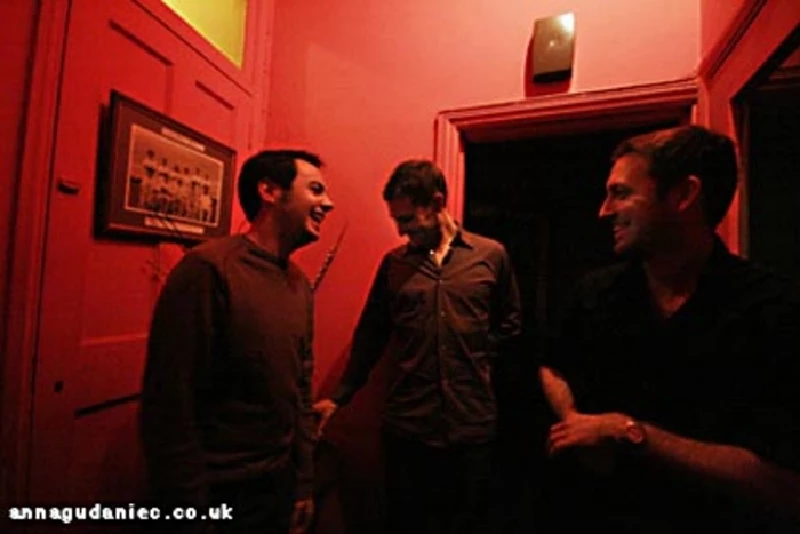
intro
In what is our fifth interview with him, John Clarkson speaks to former Baptiste front man Wayne Gooderham about the surprising tentative optimism of his current band Kelman's second album, 'I Felt My Sad Heart Soar'
“We mention Commercial Road on this new album, and, as you will see, it is not the nicest of roads,” says Wayne Gooderham towards the end of an interview with Pennyblackmusic. “In fact it’s fucking dump, but I quite like the idea that even here in this shitty dump you can find something which perhaps you wouldn’t expect.” He looks out of the window of the somewhat scruffy bar we have been sitting in for the past hour onto Commercial Road. Commercial Road has been his home for the last four years, and he will be leaving soon, moving on in three weeks time to a new better flat in Holloway and North London. He is right. Situated in a still down-at-heel part of London’s East End, a few hundred metres away from the Aldgate East tube station, Commercial Road is ugly. A tattered mash of rag trade showrooms and other similar ne’er-do-well businesses ; high rise offices ; faded, paint-peeling “luxury flats”, occasional generation-to-generation decaying East End homes and waste ground, it is a place that has come together and fallen apart over the decades with little thought to size or structure, or community or architecture. One of the main buildings of the London Metropolitan University is situated twenty or so doors down from Gooderham’s small bedsit. During term time and the week, Commercial Road is probably quite busy, but on this sticky hot Saturday afternoon in July, with the students away and the traders having gone home for the weekend, it is almost deserted. We have met here to talk about Gooderham’s band Kelman’s second album, ‘I Felt My Sad Heart Soar’, which is due out the group’s own Liner Records in September. Kelman formed out of the ashes of Gooderham’s old band Baptiste, which released one album, ‘Nothing Shines Like a Dying Heart’, in late 2002, a few months before splitting up. Kelman’s previous album, ‘Loneliness Has Kept Us Alive’, which, also came out on Liner, was released in 2006. As well as Gooderham, who is the band’s songwriter, on vocals and guitar, Kelman consists of Gooderham’s brother and fellow ex-Baptiste member Marc on drums and percussion, and their friend Paul Ragsdale on keyboards and melodica. Ragsdale began work as the producer on ‘Loneliness Has Kept Us Alive’, and then became a member halfway through its recording Kelman, like Baptiste before them, have never attracted much more than a tiny following. There are fans who turn up faithfully at each of the seven or eight rare gigs they play in London a year, and websites such as this one who have raved since their beginning about them. Yet , over ten years on from first getting Baptiste together, the Gooderhams, despite also having run for the last eight years Uptight, a popular monthly club, are still little known in London musical circles. The reasons for Kelman’s lack of success have never been fully explicable. Perhaps it is in part though because of their music, which, described by Pennyblackmusic as “merging the stark beauty of the Velvet Underground at the time of their 1969 self-titled third album with the blunt melancholy of Arab Strap and occasionally the surging intensity of Tindersticks”, has been almost permanently unfashionable. Perhaps also it is because of an inability or unwillingness on the behalf of the Gooderhams and Ragsdale to play the game, to hang in with the appropriate industry people. Perhaps as well too it is because of the bleak subject matter of Wayne Gooderham’s lyrics. Pennyblackmusic said at the time of ‘Loneliness Has Kept Us Alive’ that “Gooderham’s sparse lyricism in its earthiness and spiky realism” was “reminiscent of both American writers Henry Miller and Charles Bukowksi and also the Glaswegian author James Kelman, after whom Kelman have named themselves.” It is also said about the album itself that it was “a monochromic, but epic set of confessions of drunken scrapes, one night stands and brief, doomed love affairs.” Yet anyone expecting pure melancholy on ‘I Felt My Sad Heart Soar’ might be surprised. The opening ‘Untethered’ with its doomy synthesisers, and discordant garage rock number and download only single ‘Is This How It Ends ? are both about the collapse of relationships, while the penultimate track, nine minute psychedelic epic ‘NYE’, tells of a drug and booze-fuelled New Year’s Eve, in which renewed hopes and promises are quickly broken. For every dark song, there is another though of hesitant optimism. Brass-tinged ballad ‘Commercial Road’ tells of a shock moment of emotional connection on Gooderham’s home street. The jangling, experimental spoken-word frenzy of ‘The Pursued, the Pursuing, the Busy and the Tired’, is about the culmination finally of a long promised sexual experience. ‘Kicking Cans All the Way Home’, another aching ballad, tells of the unbridled happiness found on a night out, and the album’s closing number, the pastoral, electronic strings-laden ‘You’re Still Everything to Me’, is a tribute to a perhaps only briefly lost love. As much as ‘Loneliness Has Kept Us Alive’ was about a need for solitude and privacy, ‘I Felt My Sad Heart Soar’ is about reaching out for a “voice in the dark.” Even on Commercial Road, it seems that joy and hope can be found. PB : The title for this new album, 'I Felt My Sad Heart Soar' is double-edged. It infers, at least initially perhaps before you have perhaps heard it, that this is going to be another fairly melancholic record from Kelman, which to a degree it is. But then when you stop to think about it, and the fact that the heart in the title is soaring, you realise that that in fact is a pretty positive title. WG : It is meant to be a positive title. PB : Was that because you aiming for something more positive with this record? WG :. Yeah, I was. Life sometimes can be pretty difficult, but it isn't always that way. This new album is primarily about the beginnings and the endings of relationships, and the highs and lows that go with that. I don’t really see it as being a concept album, but I suppose in a way it is almost. It is a much more upbeat album than ‘Loneliness Has Kept Us Alive’ was. Both of the titles of the last two albums were, however, meant to be positive as well. 'Nothing Shines Like a Dying Heart' implies that when you are heartbroken you are at your most alive. 'Loneliness Has Kept Us Alive', well the fact that you’re still alive, that can only be a good thing (Laughs). PB : It is fairly life-affirming really. WG : We try to be. It can be difficult sometimes, but I have never wanted to write a depressing album for the sake of it. All the records we have tried to put out try to capture a moment and describe it, and to get something positive out of it. PB : There is a quote from F. Scott Fitzgerald’s ‘Tender is the Night-“You mustn’t confuse a single failure with a final defeat”-on the sleeve of the CD booklet on ‘I Felt My Sad Heart Soar’. Why did you put that on the booklet ? WG : It is one of my favourite books. I think it is worthwhile remembering that. I have to tell myself that weekly really. It was going to be the title of the album at one point. PB : Why didn’t you make it that ? WG : Because I found a better one, one that I had written. I would rather use something that I had done, rather than borrow someone else's. PB : Does that quote reflect on the state of the band ? You pick up really good reviews ... WG : Yet at the same time the record industry and fans and promoters and that whole genre of music doesn't really want to know us. PB : Why do you think despite that you have survived as long as you have? WG : As soon as we reach a point where we can't go any further, and we can't produce anything that was better than before, then we'll stop. As long as we've got something which we think should be heard we'll put it out, even if it doesn't get heard. It is frustrating though. It is one of the most frustrating things in my life. PB : You must appreciate though the fact that those people who do listen to you really do seem to get you. WG : We do. Without that, and the support of the fanzines and webzines that do write about us, we wouldn't carry on. You do need some oxygen occasionally. That's why we released the last single, ‘Is This How It Ends ?’, as a download. It was a way for us to get some air and to remind people that we were still around. It wasn't meant to be a single. We have done countless singles. It was just something to flag that we were still here. PB : You seem to have gone full circle in a way. Baptiste used keyboards in their latter days and on ‘Nothing Shines Like a Dying Heart’. After Baptiste broke up, and you and Marc formed Kelman, you both played with a violin player briefly and then as a duo. Paul joined halfway through the recording of ‘Loneliness Has Kept Us Alive’. Do you think you are at your best when you have got a keyboardist in the band ? WG : Yeah, I think so. I think keyboards should be in all bands. When the Fall didn't have keyboards for a few years they were definitely missing something. On the first album the songs were already there and Paul put his part over the top, whereas with this album Paul was there from the first rehearsal when the songs unveiled themselves. PB : Did that change the way in you wrote the songs? WG : No. We did what we have always done, whichever group or line-up I have been in. I would come in with the song and then we would all rehearse as a band and record it. PB : It is an album in many ways of contrasts, The penultimate track, 'NYE', is nearly nine minutes long, but after that you get as final coda the last track, 'You Are Everything to Me', which only runs for two minutes. WG : That was completely intentional. We actually called that track 'Coda' for ages. We weren't going to release it on the album. It was actually going to be a hidden track, five minutes after the rest of the album. The album was going to finish originally on 'NYE', but I didn't feel that it was the right end to the album. I knew that there had to be a comedown, just something short. It was just meant to be a little piece of music at the end of the record. That is the first time that I have ever written something intentionally where I have thought, "Right, it has to be a short song." It basically took us as long for us to play it as it took me to write it, and it was recorded absolutely completely live. It is my favourite track on it. I think that it is a lovely song. PB : 'The Pursued The Pursuing The Busy and The Tired' is a wonderful title. Why did you choose that title for that song ? WG : It's a line from 'The Great Gatsby'. I just keep a notebook. When I am reading a book, if there is a particular passage I like, I'll write it down. I've got a notebook full of quotes, and sometimes they will lend themselves to songs. PB : How did you write that track ? WG : We played it live for a while just as an instrumental and in fact we recorded it initially as an instrumental. When Paul was mixing it, I said to him, "I wonder what that track will sound like if I do some talking over it", and so I picked up a book I was reading and read it at random. We fed it back and it sounded really good. First of all I thought that maybe I would find something to read over the top of it and then I thought, "Fuck that. No. I'm meant to call myself a writer. I should be able to write something for it.” It was fucking difficult. That and 'Kicking Cans All the Way Home.' are the two most difficult lyrics I have had to write. It was just torture. I had to re-draft and re-draft and re-draft them. To get them to frame right with the music, the timing needed to be exactly right. PB : Was it difficult when it came to recording those lyrics as well ? WG : That was difficult as well (Laughs). The vocal wouldn't come out right when I read it. It wasn't how I imagined it. It sounded too rushed and high-pitched, and we did take after take after take of it. We almost gave up and left it as an instrumental. As we had the instrumental already recorded, I would sit for hours playing the CD through speakers and reading along to it in front of my little tape recorder and trying to get the words to fit the music. When I recorded takes and listened to it back, I have to say it sounded exactly like how I wanted it, but every time I tried to record it properly it just wouldn't work. It must have been because it was a shitty mic or something. In the end Paul took the muffler off it, so I could literally just hold it up to my lips and mumble, and that was the answer. We got it in the first take. The lyrics come from bits of short stories that I had written. I sort of cannibalised them. I tried to get it so that it is all one story. There is a beginning, a middle and an end (Laughs). PB : You pay a lot of attention to detail, and the small details in particular. It shines through both on your songs, and also on the artwork on your singles and albums. WG : All my attention goes on the small details. If you get the details right everything else will follow. It is important. If you are serious about it and you do treat making music and writing as an art, then you should pay attention to details. PB : Most bands name their songs after the chorus and without a lot of thought really. I get the impression, however, that you agonise over it. WG : I do. As I said, it is all about details and that is just another aspect of it. The title is an important part of a song. On some songs the chorus will lend itself naturally to the title of the song, and there is no point in changing it. You know when you have got the right line in a song. You know when you have got the wrong line as well. I can be singing something in rehearsal, and I know it is just a rehearsal, but if it doesn't feel right I'll give it a rest and sing something else. It is the same with a song title. I’ll keep working at it until it feels right. The song title evokes something, even before you have heard the song, and it can add an extra dimension to it. PB : Sometimes the title doesn't actually appear in your lyrics. You' don’t hear either 'The Pursued, The Pursuing...' or ‘NYE’ for example in the lyrics. WG : Or ‘Shut a Final Door’ as well for that matter. But then you’ve got ‘You’re Still Everything to Me’ which in contrast is also the only lyric of that song. When I was writing that song, I was trying to think of another song title for ‘You’re Everything...’, but there wasn’t anything better than that, so I decided to just go with it. It really is what is right for the song. You can listen to a song and not know its title, and then when you do hear its title it can completely change for you what that song is about. I wish people would pay more attention to song titles, because you can do interesting things with them. It is just another art. It is like the sleeve or the artwork. It is just something else to get right. It is another aspect of it. PB : This album seems to be a lot less about alcohol than both ‘Loneliness Has Kept Us Alive’ and ‘Nothing Shines Like a Dying Heart’. WG : I go swimming a lot nowadays. I try not to drink alcohol during the week these days. It wasn’t done consciously though. PB : Do you write basically about what has happened to you since the last album when you write songs ? WG : Pretty much so. There are a few oldies though on ‘I Felt My Sad Heart Soar’. ‘Postcards’, which appears on the album, is one of the first songs that I ever wrote. It is a very old song. That was written for one of the first Baptiste singles, but it was never officially released. It fits on this album though. They are all my songs, so if it fits on the album it will be on there. We actually recorded a song called ‘Here Comes the Sadness’ for this album. It was originally going to be on there, but we took it off because it didn’t fit with the rest of the album. If we were going to be precious about it, we would have said, “Right ! Drop ‘Postcards” as that had already been released five years ago in its demo form on a compilation CD, but you’ve got to do what is best for the album. The record dictates what goes on. ‘Shut a Final Door’, which is also on ‘I Felt My Sad Heart Soar’, is another track like that. Why wasn’t it on ‘Loneliness Has Kept Us Alive’ ? We had had for years, but it just wasn’t right. You put it on when it is right. It wouldn’t fit on the last one, but it fits on this one. It goes thematically with what else is on there. PB : You have recently started your own bands nights under the name of Despite the Amputations. Why have you started doing that ? WG : Despite the Amputations is the live branch of our Uptight club and runs occasionally. What happens when no promoter wants to know us or we can’t get a gig to save our lives, we put on a gig at the Albany where we hold Uptight, which we have named Despite the Amputations and play it ourselves basically out of necessity. I have got no desire to promote band nights. It is just to give us somewhere to play because otherwise the promoters just don’t see our name. Maybe that is because we don’t go to many bands nights ourselves, and I just can’t be arsed to hang out and scratch backs with the right people and so on. PB : Live music is a much bigger thing than it was a few years ago. How does that affect a band like Kelman ? WG : It is like a foreign country to us. We honestly don’t get asked to play many nights. We have to go and ask. We played in Berlin recently which was nice. We were asked to play Paris as well and are going there in October. We’re going to actually get paid to do that gig, and we got paid in Berlin as well. In London though we can’t get ourselves arrested. We have to leave the country to play a gig (Laughs). PB : You have never had any reviews in the mainstream press, have you ? WG : Hopefully we will get some press this time . I want to try and get in some magazines, but no we have never been featured there really. We think that we deserve to be heard and that we are a good band. That is what keeps us going. That knowledge. It would be nice though if some more people heard us, but we keep going because we keep thinking, “Maybe someone will hear it. Maybe it will.” You never know. It might catch on at some point. I don’t think that it will ever be huge, but if would be nice to get a following. PB : Thank you. The photographs that accompany this article were taken exclusively for Pennyblackmusic by Anna Gudaniec.
Picture Gallery:-
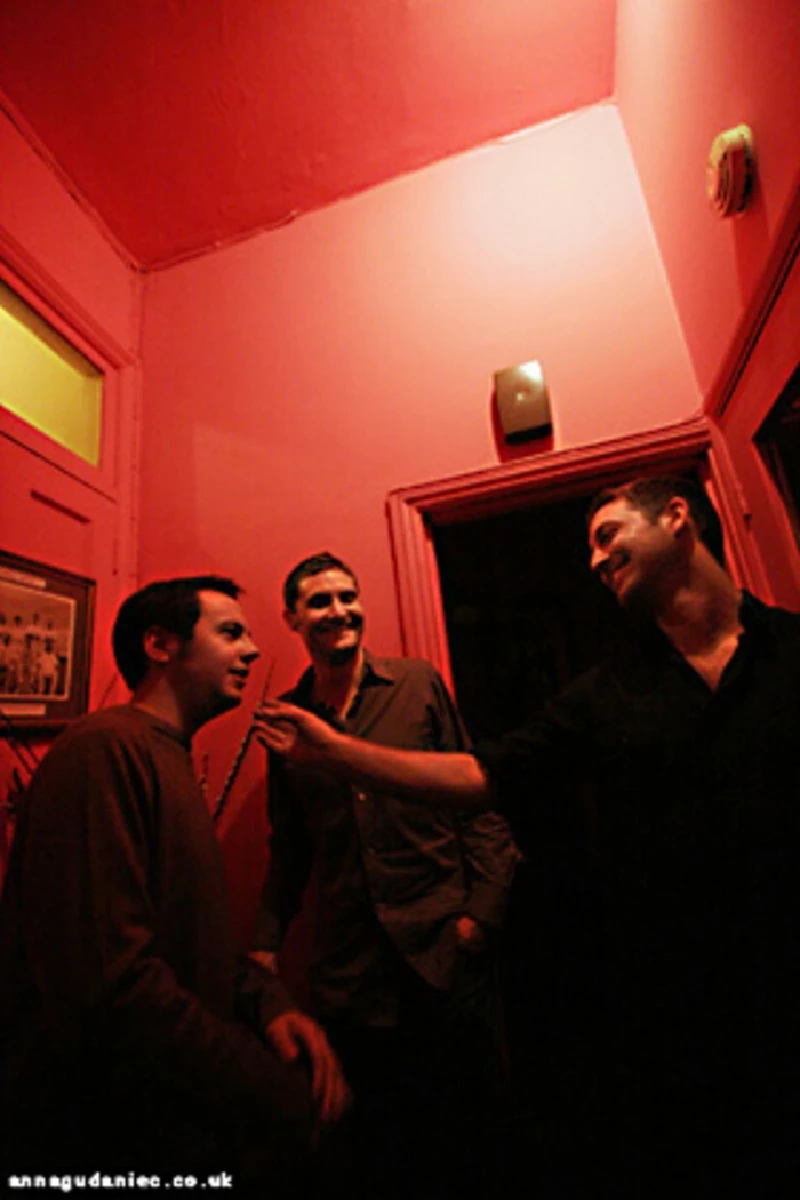
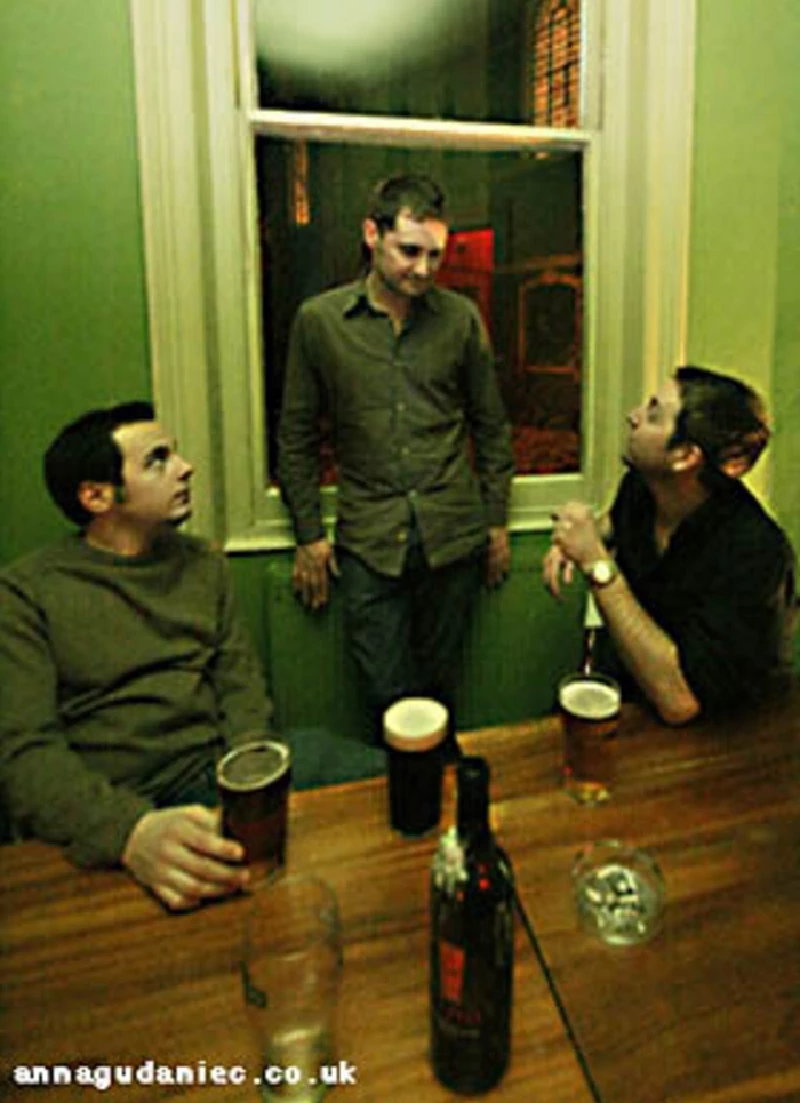
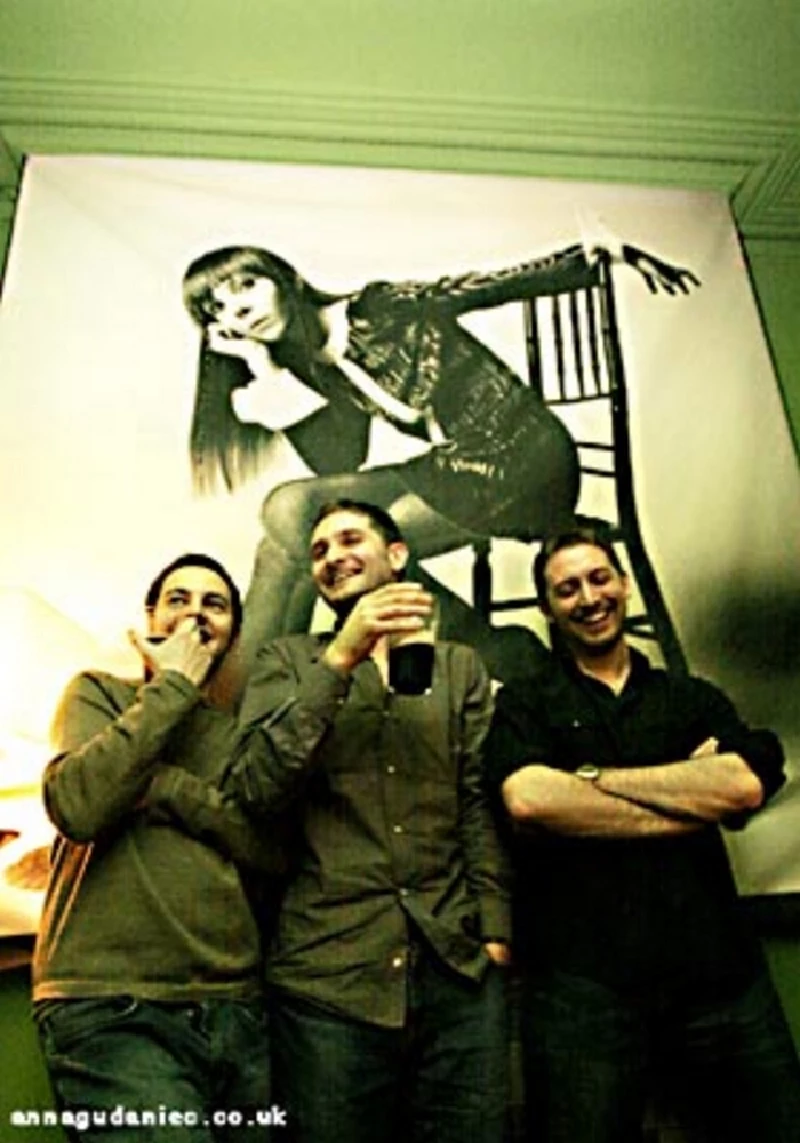
live reviews |
|
Albany, London, 11/10/2007 |
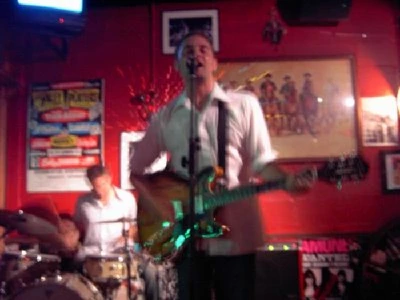
|
| At a show at the Albany in London organised by the Uptight club, Ben Howarth watches one-time Pennyblackmusic Bands Night stars Kelman and Joe Gideon and the Shark play high quality sets |
| Betsy Trotwood, London, 10/5/2005 |
reviews |
|
I Felt My Sad Heart Soar (2008) |
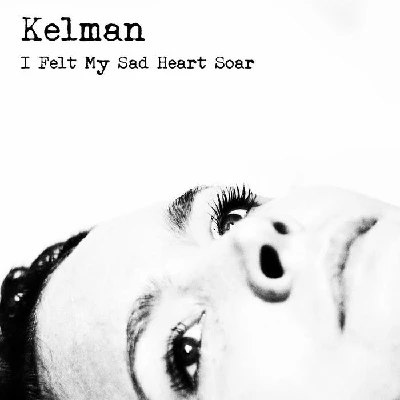
|
| Excellent, frequently surprising second album of dark, haunting melodies and atmospherics from fine London-based trio, Kelman. |
| Is This How It Ends ? (2007) |
| Loneliness Has Kept Us Alive (2006) |
| The Heart Is A Useless Ally (2006) |
| The Happiest Man Alive (2005) |
most viewed articles
current edition
Spear Of Destiny - InterviewRobert Forster - Interview
Fiona Hutchings - Interview
When Rivers Meet - Waterfront, Norwich, 29/5/2025
Carl Ewens - David Bowie 1964 to 1982 On Track: Every Album, Every Song
Brian Wilson - Ten Songs That Made Me Love...
Pistol Daisys - Waterfront, Norwich, 29/5/2025
Nils Petter Molvaer - El Molino, Barcelona, 24/4/2025
Credits - ARC, Liverpool, 17/5.2025
Gary Numan - Berserker
previous editions
Heavenly - P.U.N.K. Girl EPDwina Gibb - Interview
Boomtown Rats - Ten Songs That Made Me Love....
Oasis - Oasis, Earl's Court, London, 1995
Sound - Interview with Bi Marshall Part 1
Trudie Myerscough-Harris - Interview
Serge Gainsbourg - Ten Songs That Made Me Love...
Brad Elvis - Interview
Susie Hug - Interview
Chuck Prophet - Ten Songs That Made Me Love...
most viewed reviews
current edition
Peter Doolan - I Am a Tree Rooted to the Spot and a Snake Moves Around Me,in a CircleGarbage - Let All That We Imagine Be The Light
Little Simz - Lotus
Suzanne Vega - Flying With Angels
John McKay - Sixes and #Sevens
Billy Nomates - Metalhorse
Vinny Peculiar - Things Too Long Left Unsaid
HAIM - I Quit
Eddie Chacon - Lay Low
Only Child - Holy Ghosts
Pennyblackmusic Regular Contributors
Adrian Janes
Amanda J. Window
Andrew Twambley
Anthony Dhanendran
Benjamin Howarth
Cila Warncke
Daniel Cressey
Darren Aston
Dastardly
Dave Goodwin
Denzil Watson
Dominic B. Simpson
Eoghan Lyng
Fiona Hutchings
Harry Sherriff
Helen Tipping
Jamie Rowland
John Clarkson
Julie Cruickshank
Kimberly Bright
Lisa Torem
Maarten Schiethart